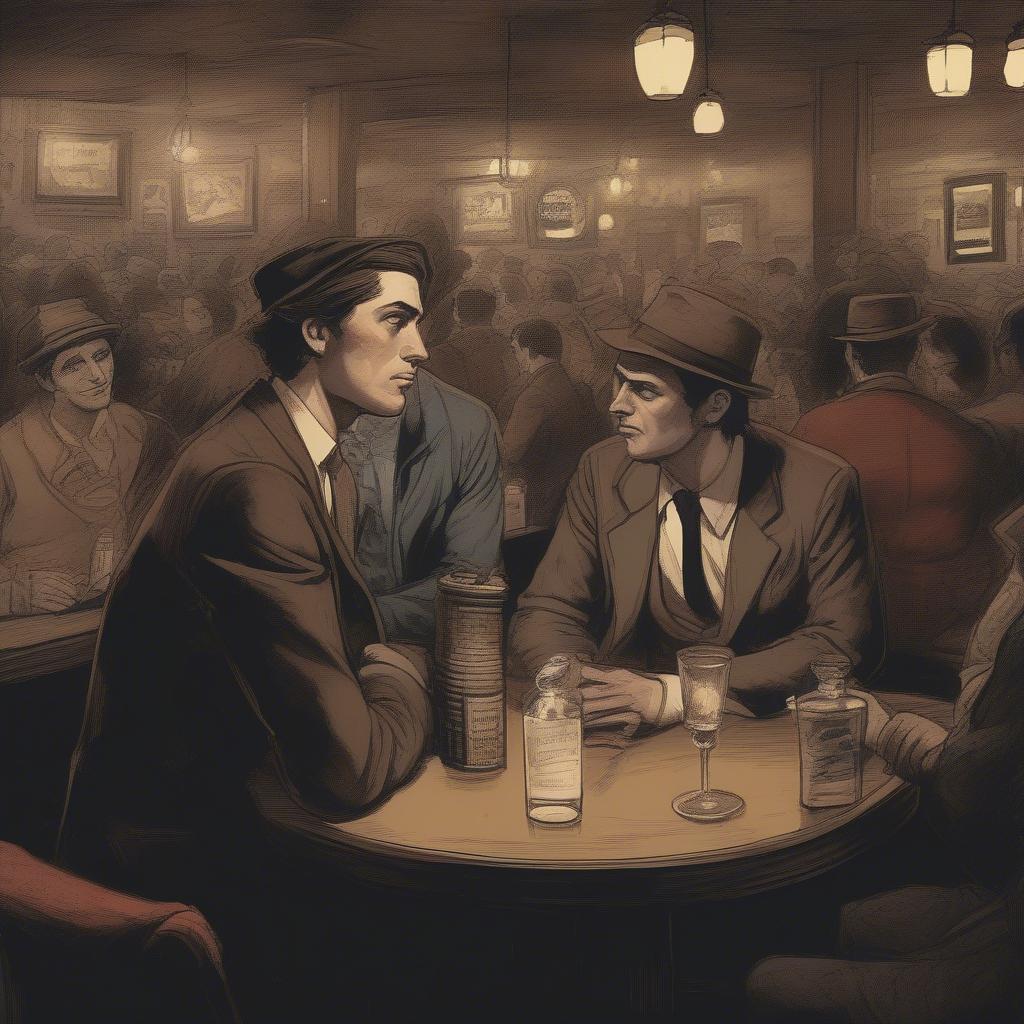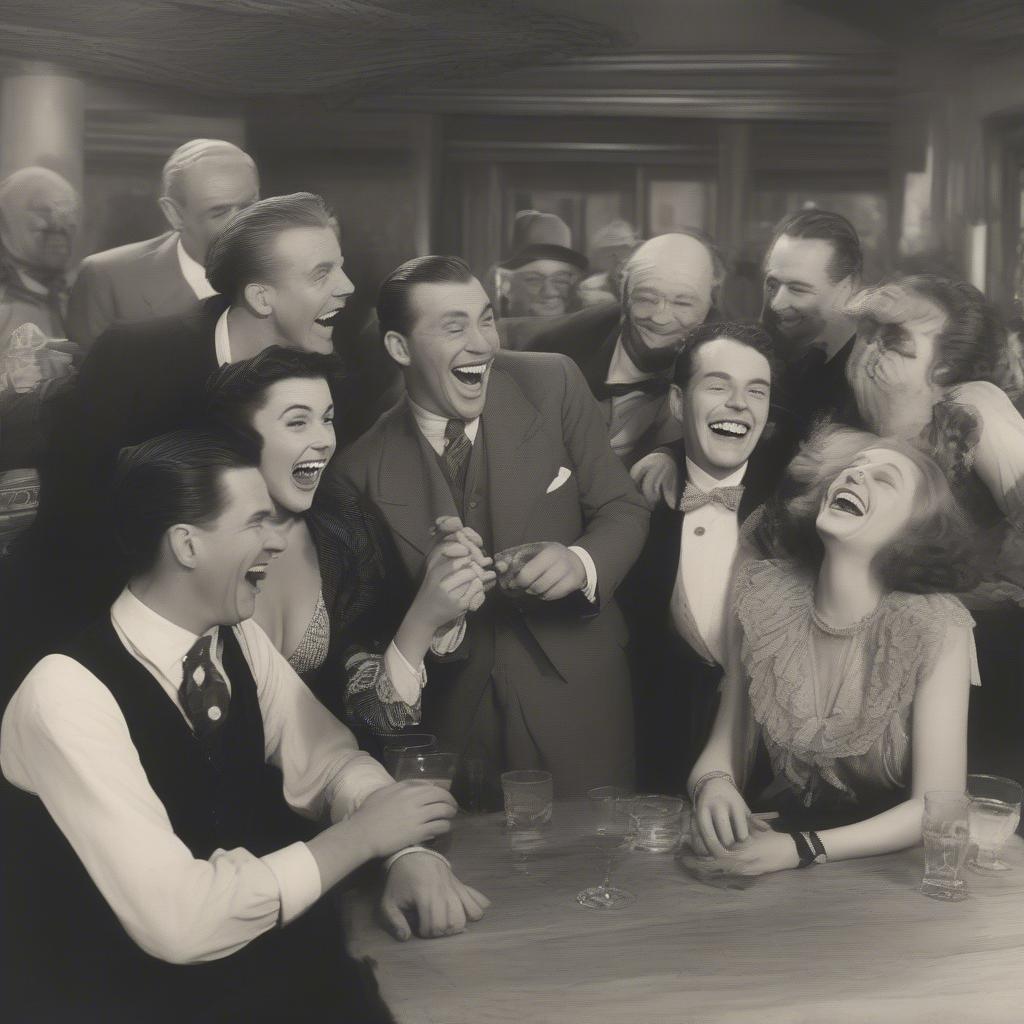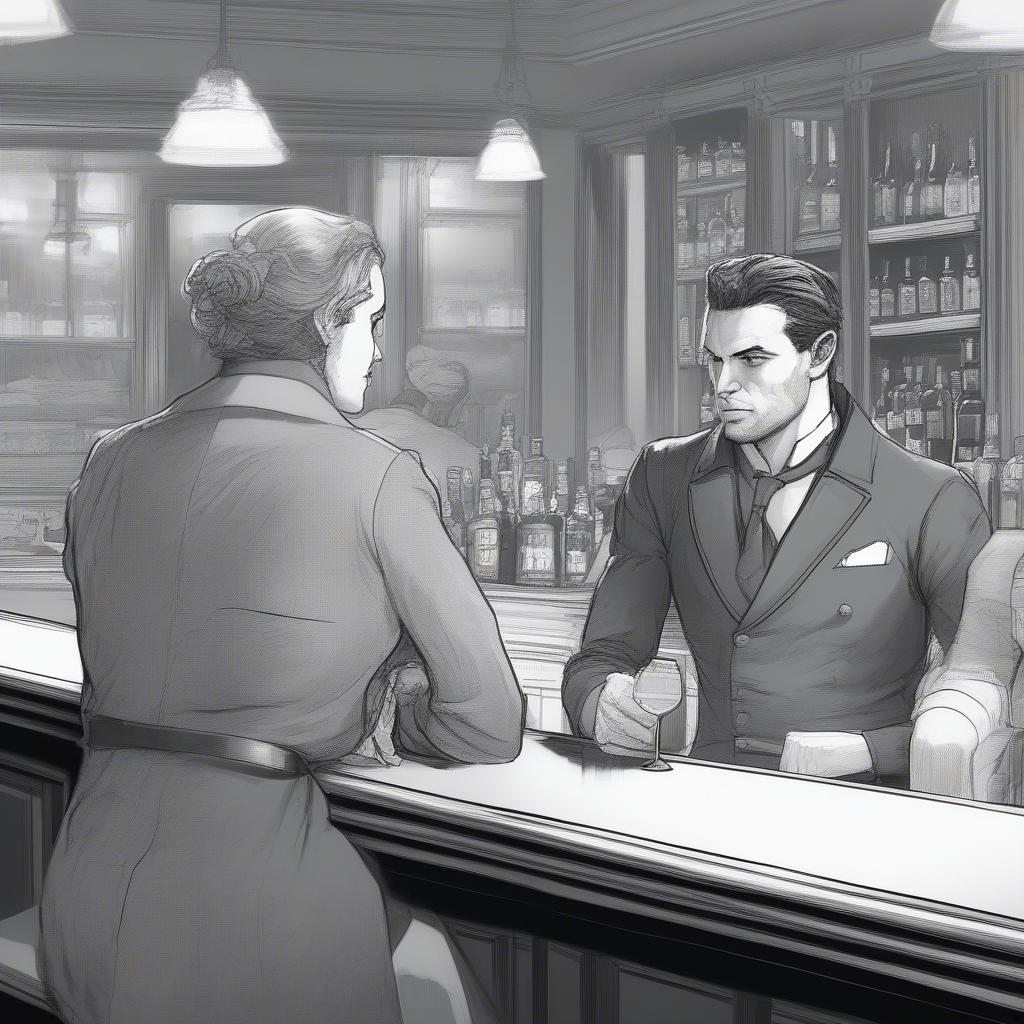Holden Caulfield’s cynical and often humorous descriptions paint a vivid picture of the Wicker Bar in J.D. Salinger’s iconic novel, The Catcher in the Rye. His observations reveal not only the bar’s physical attributes but also his own adolescent anxieties and judgments about the adult world he so desperately wants to avoid. So, How Does Holden Describe The Wicker Bar? Let’s delve into his perspective.
Holden’s Disdain for the “Phony” Wicker Bar
Holden’s descriptions of the Wicker Bar are laced with his characteristic disdain for anything he perceives as “phony.” He sees the bar, a popular spot in the Seton Hotel, as a breeding ground for superficiality and pretense. He doesn’t outright describe the wicker furniture itself, focusing instead on the people who frequent the establishment. He comments on their behavior, conversations, and overall demeanor, all of which contribute to his negative impression of the place.
 Holden Observing the Wicker Bar Patrons
Holden Observing the Wicker Bar Patrons
Holden’s observations of the Wicker Bar reveal his struggle to connect with the adult world. He views the bar as a symbol of the phoniness he so desperately tries to escape.
“All the phonies” at the Wicker Bar
He frequently uses the word “phony” to describe the patrons, highlighting their affected manners and superficial conversations. He sees them as putting on a show, pretending to be something they’re not. This contributes to his overall feeling of alienation and isolation.
“It was full of phonies,” Holden says. This sets the tone for his entire experience at the Wicker Bar. He doesn’t see the point of their interactions, viewing them as empty and meaningless. He criticizes their laughter, their conversations, even the way they hold their drinks.
 Phony Patrons at the Wicker Bar
Phony Patrons at the Wicker Bar
The Wicker Bar as a Symbol of Adulthood
The Wicker Bar, for Holden, represents the adult world he both fears and is simultaneously drawn to. He goes there hoping to find some connection, some semblance of belonging, but ultimately finds it only reinforces his negative perceptions of adulthood.
Why does Holden go to the Wicker Bar?
Despite his aversion to the “phonies,” Holden repeatedly visits the Wicker Bar. This seemingly contradictory behavior suggests a deeper conflict within him. He craves connection, even if it’s with people he dislikes. The bar represents a foray into the adult world, a world he both criticizes and longs to understand.
how does holden describe the wicker bar quizlet
“I went in anyway,” Holden admits, acknowledging his own conflicted feelings. He knows he won’t enjoy himself, yet he’s drawn to the bar, perhaps out of a morbid curiosity or a subconscious desire to test his own perceptions.
Holden’s Interactions at the Wicker Bar
Holden’s interactions at the Wicker Bar further reinforce his negative view of the place. He encounters various characters, each of whom embodies some aspect of the “phoniness” he despises. These encounters are often awkward, uncomfortable, and ultimately unsatisfying.
 Holden's Awkward Encounter with Lucien
Holden's Awkward Encounter with Lucien
“She kept telling me to go home,” Holden recalls, highlighting the disconnect between him and the other patrons. They don’t understand him, and he doesn’t understand them.
What does Holden’s experience at the Wicker Bar tell us about him?
Holden’s experiences at the Wicker Bar reveal his immaturity and his struggle to navigate the complexities of the adult world. He sees everything through a simplistic lens, labeling anything he doesn’t understand as “phony.” His inability to connect with others at the bar underscores his own loneliness and isolation. “I felt like I was surrounded by jerks,” Holden says, summing up his experience. This statement reflects his own emotional turmoil more than it does the actual atmosphere of the bar.
Conclusion
How does Holden describe the Wicker Bar? He paints it as a place filled with “phonies,” a microcosm of the adult world he rejects. His descriptions, though colored by his own cynicism and immaturity, offer a fascinating glimpse into the mind of a troubled adolescent grappling with complex emotions and societal expectations. Holden’s observations of the Wicker Bar serve as a powerful reminder of the challenges of adolescence and the search for authenticity in a world perceived as artificial.
FAQ
- Why does Holden dislike the Wicker Bar?
- Who does Holden meet at the Wicker Bar?
- What does the Wicker Bar symbolize in The Catcher in the Rye?
- How does Holden’s description of the Wicker Bar reflect his personality?
- What is the significance of Holden’s repeated visits to the Wicker Bar?
- How does Holden’s experience at the Wicker Bar contribute to the overall theme of the novel?
- What other locations in the novel are similar to the Wicker Bar in Holden’s eyes?
Situations encountered frequently
Readers often wonder why Holden goes to the Wicker Bar if he dislikes it so much. His behavior seems contradictory, highlighting his inner conflict and desire for connection despite his cynicism. Another common question is whether the Wicker Bar is a real place. While the Seton Hotel is fictional, the descriptions are evocative of upscale bars in 1950s New York City.
Related questions and articles
- What is the significance of Pencey Prep in The Catcher in the Rye?
- How does Holden’s relationship with Phoebe influence his actions?
When you need support, please contact Hotline: +84 388 951 999, address: My Dinh, Hanoi, Vietnam or San Francisco, CA 94105, USA. We have a 24/7 customer service team.


